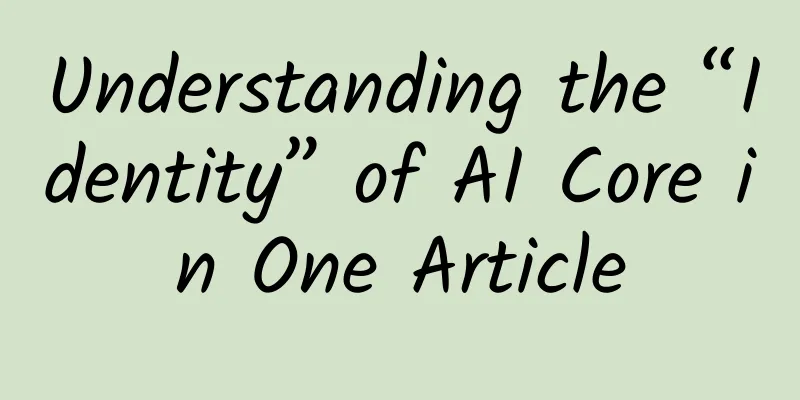Should you eat first or brush your teeth first when you wake up in the morning? This is actually a big question!

|
What is the first thing to do when you wake up in the morning? Eat first and then brush your teeth, or brush your teeth first and then eat? This seems to be a commonplace. However, it is also true that there are different opinions on the Internet. Those who support eating first and then brushing your teeth believe that the metabolites of oral bacteria are beneficial to health; while those who support brushing your teeth first and then eating believe that oral bacteria are too dirty and eating them will affect health. In the end, to answer this question, we must understand the role of oral bacteria. So, if we really want to analyze this question from the perspective of oral bacteria, what kind of answer can be considered the correct answer to this question? 01 The True Face of Oral Bacteria Strictly speaking, oral bacteria should be called oral "microorganisms" because there are not only bacteria but also viruses, fungi, etc. living in the mouth. However, people are more accustomed to calling the oral microbiome oral flora. There are many types of bacteria in the oral flora, roughly more than 700 species, and the number is countless. Tuchong Creative These bacteria are permanent residents of the oral cavity, and those that are dominant are called normal flora or intrinsic flora. Their relationship with the host is relatively stable; those that are not dominant can increase significantly under certain conditions and transform into supplementary flora with pathogenic effects; and bacteria from the diet can only exist in the oral cavity for a short time and are called transient flora. They do not have a competitive advantage in the oral cavity, but may become pathogenic bacteria if they enter the intestine. 02 Oral flora imbalance can affect oral and systemic health When oral flora and oral organs coexist peacefully, they not only do not cause diseases to people, but also serve as a natural biological barrier to defend against the invasion of various pathogens; however, when this balance is broken, certain types of bacteria will dominate and become the causative factors of specific oral diseases. In fact, many common oral diseases, such as tooth decay, periodontitis, oral mucosal diseases , etc., are essentially related to oral flora imbalance. Therefore, it is not terrible to have bacteria in the mouth, but it is terrible that certain bacteria dominate. Image source: Reference 3 Oral flora is not the inherent flora of other organs outside the mouth, but it may have adverse effects on systemic health through bacteremia, etc. It has been found that oral flora is related to a variety of diseases such as gastrointestinal system diseases, nervous system diseases, endocrine system diseases, immune system diseases, cardiovascular system diseases, etc. Image source: Reference 3 Periodontal pathogens can affect many pathological processes, so diabetes and periodontitis have a bidirectional relationship and are risk factors for each other. 03 Eat first and then brush your teeth, or brush your teeth first and then eat? As mentioned above, bacteria from the diet do not have a big impact on oral health. Therefore, what can affect oral health is the oral supplementary flora, which are often related to pathogenicity. Based on the above facts, the basis for determining whether to brush your teeth before or after meals is first whether the oral cavity is healthy. Tuchong Creative Oral health means that the relationship between oral flora and oral organs is in a balanced state. At this time, brushing teeth before or after meals is harmless. The benefit of brushing teeth before meals is that it can freshen breath and make the meal feel better. An unhealthy oral cavity means that the relationship between the oral flora and the host is in an unbalanced state. At this time, brushing your teeth before or after meals depends on the condition of the oral disease. 1. Tooth decay The causative factors of tooth decay include not only bacteria (cariogenic bacteria), but also food (fermentable carbohydrates), host and time. These four factors must act at the same time to cause tooth decay. Oral bacteria are not only numerous but also grow quickly, so it's obvious that they will return soon after brushing your teeth. Therefore, brushing your teeth before meals means that not only will food residues continue to exist after meals, but oral bacteria will also continue to play a role. Therefore, until the next time you brush your teeth, oral bacteria and food residues still have more opportunities for contact, so acid substances may still be produced, thereby corroding teeth. Tuchong Creative Brushing your teeth after a meal means that even if oral bacteria can continue to work shortly after brushing your teeth, the food residue has been largely removed, so the bacteria will be isolated until the next meal. Brushing your teeth after a meal is more conducive to reducing the possibility of acid production. It can be seen from this that from the perspective of tooth decay prevention, it is more scientific to brush your teeth after meals. 2. Periodontitis Although the pathogenic factors of periodontitis are more complex than those of tooth decay, only bacteria (periodontal pathogens) are the activating factors (determining factors), and the others are all promoting factors. It can be seen that periodontitis is not closely related to food. Therefore, from the perspective of preventing periodontitis, whether brushing your teeth before or after meals, as long as you can brush your teeth effectively twice a day, you can guarantee the effect of controlling dental plaque for a certain period of time, which is meaningful for disease prevention and treatment. However, given that periodontal pathogens may have many adverse effects on overall health, brushing your teeth before meals seems to be more appropriate. It can be seen from this that for individuals with healthy oral health, there is not much difference between brushing teeth before and after meals; for those who are susceptible to tooth decay, brushing teeth after meals is more beneficial for tooth decay prevention; and for patients with periodontitis, brushing teeth before meals seems to be more beneficial for systemic disease prevention and control. References 1 Bian Zhuan, ed. Oral Biology (4th edition) [M]. Beijing: People's Medical Publishing House, 2012. 2 Meng Huanxin, ed. Periodontology (4th edition) [M]. Beijing: People's Medical Publishing House, 2012. 3 Gao L, Xu T, Huang G, et al. Oral microbiomes: more and more importance in oral cavity and whole body[J]. Protein Cell, 2018, 9(5): 488-500. Author | Rich Review | Rong Wensheng, Chief Physician, Department of Prevention, Peking University School of Stomatology This article is produced by the "Science Rumor Refutation Platform" (ID: Science_Facts). Please indicate the source when reprinting. |
<<: Are blood glucose meters reliable? Are self-testing blood glucose accurate?
>>: There are thousands of nice-smelling spices, but you must know these 5!
Recommend
Foshan Beauty Salon Mini Program, What are the functions of the Hairdressing Mini Program?
Nowadays, the demand for the beauty industry is g...
"Normal menstruation is painless, and dysmenorrhea is caused by endometriosis"? Doctors answer...
Rumor: "Normal menstruation is painless, and...
A must-have for promoters’ year-end reports: big data analysis & production tools, super comprehensive!
sx The following are some "must-have tools&q...
WeChat 8.0.10 has been updated again! 5 new features are launched. Have you upgraded?
Just yesterday, Android WeChat finally completed ...
How much does it cost to create a food ordering app in Zhaotong?
Zhaotong meal ordering app production price 1. Di...
Beware! Be careful when you have "red eyes" like this! Severe cases may cause blindness...
Expert in this article: Dr. Tian Jing, attending ...
Tips and strategies for doing fission activities!
This article is mainly divided into 5 parts: Firs...
How much does a POS machine cost? (How to apply for a POS machine? Is there any fee?)
What should you do when you urgently need to appl...
How to think about operations during the epidemic?
It has been 2 months since I stopped publishing, ...
8 methods of APP promotion and marketing!
The eight golden rules introduced in this article...
Monetization activities: How to make users willingly pay for your products?
Below, let’s start with the premise of monetizati...
The driving force behind Jupiter's continued "fever" has been found, it turns out to be this!
According to our common understanding, the closer...
What are the factors that affect the ups and downs of App Store rankings?
In the past half month, the rankings of many APP ...
The "Beijing Man" who disappeared in the war tells us the value of peace
Beijing is a city with a history of more than 3,0...









